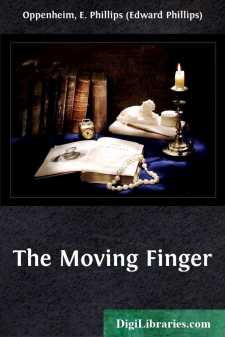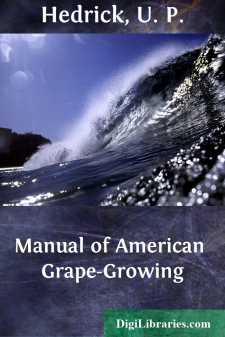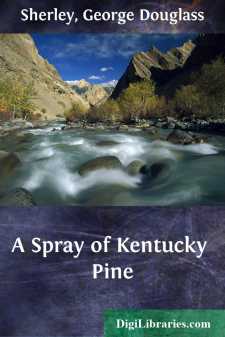Categories
- Antiques & Collectibles 13
- Architecture 36
- Art 48
- Bibles 22
- Biography & Autobiography 813
- Body, Mind & Spirit 142
- Business & Economics 28
- Children's Books 17
- Children's Fiction 14
- Computers 4
- Cooking 94
- Crafts & Hobbies 4
- Drama 346
- Education 46
- Family & Relationships 57
- Fiction 11829
- Games 19
- Gardening 17
- Health & Fitness 34
- History 1377
- House & Home 1
- Humor 147
- Juvenile Fiction 1873
- Juvenile Nonfiction 202
- Language Arts & Disciplines 88
- Law 16
- Literary Collections 686
- Literary Criticism 179
- Mathematics 13
- Medical 41
- Music 40
- Nature 179
- Non-Classifiable 1768
- Performing Arts 7
- Periodicals 1453
- Philosophy 64
- Photography 2
- Poetry 896
- Political Science 203
- Psychology 42
- Reference 154
- Religion 513
- Science 126
- Self-Help 84
- Social Science 81
- Sports & Recreation 34
- Study Aids 3
- Technology & Engineering 59
- Transportation 23
- Travel 463
- True Crime 29
Sort by:
by:
Irving E. Cox
[p54] Mryna Brill intended to ride the god-car above the rain mist. For a long time she had not believed in the taboos or the Earth-god. She no longer believed she lived on Earth. This paradise of green-floored forests and running brooks was something called Rythar. Six years ago, when Mryna was fourteen, she first discovered the truth. She asked a question and the Earth-god ignored it. A simple...
more...
THE DREAMER The boy sat with his back to a rock, his knees drawn up and clasped within fingers nervously interlocked. His eyes were fixed upon the great stretch of landscape below, shadowy now, and indistinct, like a rolling plain of patchwork woven by mysterious fingers. Gray mists were floating over the meadows and low-lying lands. Away in the distance they marked the circuitous course of the river,...
more...
PREFATORY NOTE. The collection of letters and documents which has occasioned the preparation of the present volume, though it has been so long buried in obscurity, appears to have been originally made with a view to publication. It was for many years, and until his decease, in the possession of Mr. Abel Bowen, a well-known engraver and publisher, of Boston, sixty years ago, and was obtained by him from...
more...
by:
Nelson Lloyd
THE SOLDIER OF THE VALLEY I I was a soldier. I was a hero. You notice my tenses are past. I am a simple school-teacher now, a prisoner in Black Log. There are no bars to my keep, only the wall of mountains that make the valley; and look at them on a clear day, when sunshine and shadow play over their green slopes, when the clouds all white and gold swing lazily in the blue above them, and they speak of...
more...
by:
U. P. Hedrick
PREFACE Seventy-nine books on grapes enrich the pomology of North America, not counting numerous state and national publications. Pomological writers in America have been partial to the grape, for other fruits do not fare nearly so well. Twenty-two books are devoted to the strawberry, fourteen to the apple, to the peach nine, cranberry eight, plum five, pear nine, quince two, loganberry one, while the...
more...
by:
Max Simon Nordau
CHAPTER I. "Come, you fellows, that's enough joking. This defection of yours, melancholy Eynhardt, combines obstinacy with wisdom, like Balaam's ass! Well! may you rest in peace. And now let us be off." The glasses, filled with clear Affenthaler, rang merrily together, the smiling landlord took up his money, and the company rose noisily from the wooden bench, overturning it with a...
more...
by:
May Sinclair
INTRODUCTION When six months ago Mr. Thomas Seccombe suggested that I should write a short essay on "The Three Brontës" I agreed with some misgiving. Yet that deed was innocent compared with what I have done now; and, in any case, the series afforded the offender a certain shelter and protection. But to come out like this, into the open, with another Brontë book, seems not only a dangerous,...
more...
by:
Max Pemberton
CHAPTER I THE HALL BY UNION STREET The orator was not eloquent; but he had told a human story and all listened with respect. When he paused and looked upward it seemed to many that a light of justice shone upon his haggard face while the tears rolled unwiped down his ragged jerkin. His lank, unkempt hair, caught by the draught from the open doors at the far end of the hall, streamed behind him in...
more...
by:
F. E. Hardart
Here the dark cave, along which Nat Starrett had been creeping, broadened into what his powerful searchlight revealed to be a low, wide, smoothly circular room. At his feet lapped black, thick-looking waves of an underground lake, a pool of viscous substance that gave off a penetrating, poignant odor of acid, sweetish and intoxicating, unlike any acid he knew. The smell rolled up in a sickening, sultry...
more...
The Prelude —A Note Explanatory— With James Whitcomb Riley, some years ago. This Man From Down On The Farm, made a Reading Tour, of—in Population—more than one-half of this Imperial Republic, including the Cream of the Canadian Provinces. Of that Tour, at some other time, in some more leisurely hour, he desires, if able, to make a full and faithful Record. This, is but a humble Spray of...
more...











